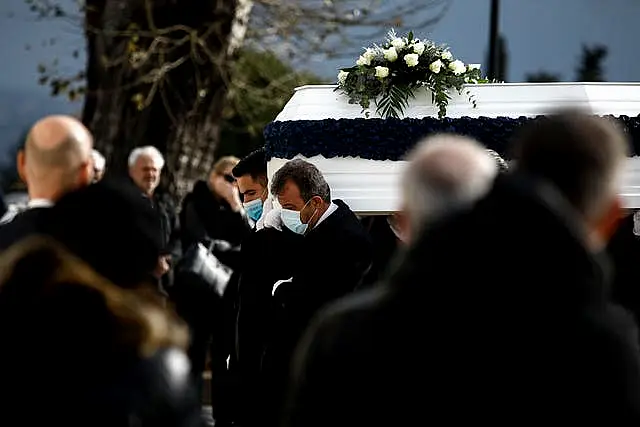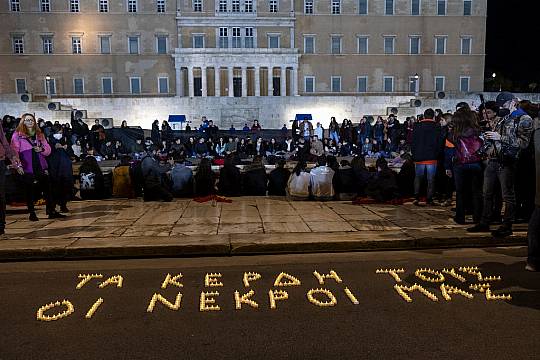The station master involved in Greece’s deadliest train crash will appear before a prosecutor and an examining magistrate on Sunday after his deposition was postponed on Saturday.
The station master, 59, is accused of placing two trains running in opposite directions on the same track.
At least 57 people died when a passenger train slammed into a freight carrier late Tuesday at Tempe, 235 miles north of Athens.
The government has blamed human error, and the station master faces charges of negligent homicide and bodily harm, as well as disrupting transportation.

Days of protests against the perceived lack of safety measures in Greece’s rail network have taken place in the wake of the disaster.
Stephanos Pantzartzidis, the station master’s lawyer, told reporters waiting outside the court on Saturday in the central Greek city of Larissa that “very important new evidence emerged that force us to request a postponement” in his client’s deposition, or giving of sworn evidence.
Authorities have not released the accused station master’s name.
Also on Saturday, one of the three members of an expert panel named by the government to investigate and issue a report on the collision resigned after opposition parties and some media outlets criticised his appointment.

Thanasis Ziliaskopoulos served as chairman and chief executive of the country’s train operator from 2010 to 2015 and is currently the chairman of the Greek agency in charge of privatising state-owned assets.
Funerals for some of the people killed in the crash, many of them in their teens and 20s, took place in northern Greece.
The force of the crash and a resulting fire complicated the task of identifying the victims, which is being done through next-of-kin DNA testing.
Some families have yet to receive the remains of their loved ones. Police said 54 people have been positively identified.

Rallies protesting against the conditions that led to the tragedy continued on Saturday. A peaceful rally in central Athens organized by the Communist Party’s youth wing drew more than a thousand people.
A rally organised by a rail workers’ union is scheduled for Sunday, also in Athens. The union, which is organising rolling labour strikes, has asked members of the public to take part.
Greek media have published damning accounts of mismanagement and infrastructure neglect in Greece’s railways.
A former head of the railway employees’ union, Panayotis Paraskevopoulos, told Greek newspaper Kathimerini that the signalling system in the area where the accident occurred malfunctioned six years ago and was never repaired.

Station masters and train drivers communicate via two-way radio and track switches are operated manually over parts of the main rail line from the capital Athens to the northern city of Thessaloniki.
The station master, who formerly worked as a porter at the state-owned Hellenic Railways, was transferred to a desk job at the ministry of education in 2011, when Greece’s creditors demanded personnel cuts in railways.
He transferred back to the company in June 2022 and was appointed station master in Larissa, an important railway hub, in January, after five months training.
Police on Friday searched a rail coordination office in Larissa, removing evidence as part of an ongoing investigation.
The since privatised train and freight operator, renamed Hellenic Train, is now owned by Italy’s Ferrovie dello Stato Italiane.







